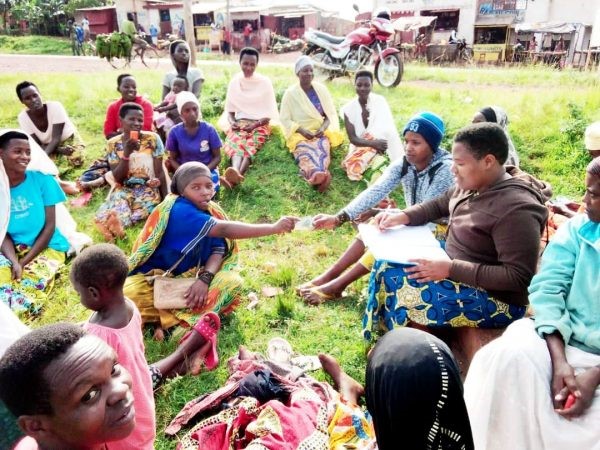Iprosarude, being a public utility and development organization, spares no effort to think about the financial empowerment of women and other vulnerable social groups. Thus, solidarity and self-help groups called VSLA (Savings and internal lending communities) are developing here and there in the provinces of Mwaro, Gitega and Kayanza. Women testify that they have carried out self-development activities thanks to these groups. During the supervision of these VSLAs, Iprosarude encourages women to integrate their husbands into these types of groups for more harmony in the households.
VSLA? How’s it going?
About twenty women gather around the market in Gitega. Around a circle, they exchange banknotes through the leader of the group. “It has become a habit. We gather here in the evenings once a week,” says Ms. Gloriose Girukwishaka, leader of the Twiyunge solidarity group on Nyabututsi Hill.
The objective of VSLA is the financial inclusion of women who save and access credit,” says the leader. Under the supervision of an Iprosarude agent, these women are also entitled to notions of entrepreneurship, information on sexual and reproductive health, the fight against sexual and gender-based violence, barrier measures against COVID-19 and peaceful conflict resolution.
VSLAs have helped many women in financial empowerment. “Today, I run a small food business thanks to the credit obtained through our VSLA group,” says Aicha, a member of the solidarity group. Every week, we save a certain amount of money and, as a result, credit applicants share the money to carry out self-development projects,” adds Régine.
The Nyabututsi group is just one example of the women’s group and even other mixed groups,” confides a young man, an Iprosarude agent who supervises more than 15 savings and credit groups on the Butamuheba hill. We meet them here and there in different communes under various names.
Today, Iprosarude has more than 510 savings and credit groups in the 3 provinces: Mwaro, Gitega and Kayanza, of which 6 groups are made up of members of the Batwa communities, a minority ethnic group that is marginalized and discriminated against in Burundi.


Recent Comments